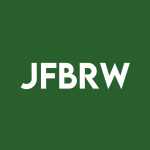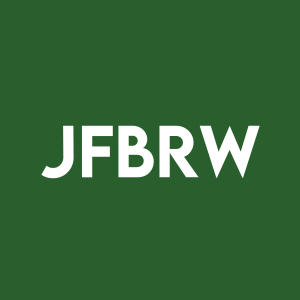Welcome to our dedicated page for Jeffs Brands SEC filings (Ticker: JFBRW), a comprehensive resource for investors and traders seeking official regulatory documents including 10-K annual reports, 10-Q quarterly earnings, 8-K material events, and insider trading forms.
The Jeffs' Brands Ltd (Nasdaq: JFBR, JFBRW) SEC filings page on Stock Titan provides access to the company’s regulatory disclosures as a foreign private issuer. Jeffs' Brands files reports under the Securities Exchange Act of 1934, including Form 6-K current reports that furnish financial information, transaction details, and key corporate announcements.
Recent Form 6-K filings include unaudited condensed consolidated financial statements and management’s discussion and analysis for interim periods, giving investors insight into Jeffs' Brands’ financial condition and results of operations. Other 6-Ks describe warrant amendments and exercise price adjustments, amendments to share purchase agreements, and press releases about strategic initiatives such as the launch of an AI-driven crypto treasury program, the acquisition and financing activities of majority-owned Fort Technology Inc., and plans to apply for a Frankfurt Stock Exchange listing.
Filings also reference corporate transactions and restructuring, including the proposed sale of Smart Repair Pro to Plantify Foods, Inc., changes in consideration structure, and extensions of transaction deadlines. Additional 6-Ks furnish press releases relating to Fort Technology’s private placements and financial results, which are relevant because Fort is a majority-owned subsidiary of Jeffs' Brands.
On this page, users can review Jeffs' Brands’ 6-K submissions as they are made available through EDGAR. Stock Titan’s platform highlights key elements of each filing and can help readers quickly identify the purpose of a report, whether it relates to financial statements, capital markets activity, warrant terms, or strategic shifts connected to the company’s move from e-commerce toward AI-enhanced homeland security and advanced technologies.
Jeffs’ Brands Ltd is implementing a 1-for-14 reverse split of its ordinary shares. Every fourteen existing shares will be consolidated into one share, reducing issued and outstanding shares from 8,960,612 to approximately 640,044, while the authorized share capital stays the same. The shares are expected to begin trading on the Nasdaq Capital Market on a reverse-split-adjusted basis on February 17, 2026. Fractional shares will not be issued, and positions will be rounded up at the DTC participant level. Exercise prices and share amounts under outstanding options and warrants will be adjusted proportionately. The company also reports that its subsidiary KeepZone AI Inc. has expanded its strategic distribution agreement with Scanary Ltd. to add a new Asian territory for AI-powered security screening solutions.
Invest Pro Shukai Hon Ltd. reported beneficial ownership of 895,165 ordinary shares of Jeffs' Brands Ltd., representing 9.99% of the company’s ordinary shares outstanding, based on 8,960,612 shares reported in a prospectus supplement dated January 22, 2026.
The reporting person, an Israeli entity, has sole voting and sole dispositive power over all of these shares and no shared power. It also certifies that the holdings were not acquired to change or influence control of Jeffs' Brands and are not part of any group arrangement.
Jeffs’ Brands Ltd reports that its wholly owned subsidiary, KeepZone AI Inc., has entered into an exclusive reseller agreement with DSIT Solutions Ltd., a global provider of underwater domain awareness and acoustic intelligence systems.
Under this agreement, KeepZone will lead DSIT’s entry into the Mexican market, targeting government agencies and energy operators with underwater security solutions aimed at countering underwater drug smuggling and protecting offshore assets. The company highlights this as part of its recent pivot from a data‑driven Amazon Marketplace e‑commerce model into the global homeland security sector through AI‑driven, multi‑layered security offerings for critical infrastructure.
Jeffs’ Brands Ltd reported two governance and strategic updates. The board appointed Class I director Tali Dinar to the audit, compensation, and nominating and governance committees, replacing Moshe Revach on those committees while he remains a director. She qualifies as an independent director and has been designated an audit committee financial expert under SEC and Nasdaq rules, strengthening board oversight of financial reporting and pay.
The company also highlighted a new commercial agreement for its wholly owned subsidiary KeepZone AI Inc., which secured exclusive rights in Mexico to market, sell and support hydrogen-powered drone systems from an advanced drone manufacturer. KeepZone will act as prime contractor and exclusive reseller targeting Mexican armed forces and national government agencies, furthering Jeffs’ Brands’ pivot into the global homeland security sector.
Jeffs’ Brands Ltd reports that its wholly owned subsidiary KeepZone AI Inc. has appointed AeroIntegral S.A. DE C.V. as an exclusive authorized reseller for certain counter‑unmanned aerial systems in Mexico, and has postponed its previously scheduled special general meeting of shareholders to a later date.
Under the appointment, AeroIntegral may market and integrate advanced drone‑defense solutions for government, defense, critical infrastructure, and enterprise customers across Mexico under KeepZone’s supervision. The move supports KeepZone’s strategy to expand its AI‑driven homeland security presence in Latin America while Jeffs’ Brands continues its pivot beyond its original Amazon‑focused e‑commerce model.
Capitalink Ltd. has disclosed a significant passive stake in Jeffs' Brands Ltd through a Schedule 13G filing. Capitalink beneficially owns 895,165 ordinary shares, representing 9.99% of Jeffs' Brands’ outstanding ordinary shares, based on 8,960,612 ordinary shares reported as issued and outstanding in a recent prospectus supplement.
The filing states that Capitalink has sole voting and sole dispositive power over all 895,165 shares and no shared voting or dispositive power. Capitalink also certifies that the securities were not acquired and are not held for the purpose of changing or influencing control of Jeffs' Brands.
Jeffs’ Brands Ltd reported that Nasdaq has notified the company it is not in compliance with the minimum $1,000,000 market value of publicly held shares requirement, based on the prior 30 business days. The company has until July 21, 2026 to regain compliance, during which its ordinary shares and warrants will continue trading on Nasdaq under the symbols JFBR and JFBRW.
Jeffs’ Brands believes its market value of publicly held shares has met the threshold and plans to demonstrate this to Nasdaq, while also considering other options if needed. Separately, its wholly owned subsidiary KeepZone AI Inc. received its first commercial purchase order from an aerospace systems integrator in Mexico for a net-launching anti-drone system, marking the first sale under recently signed reseller and distribution agreements as the company pivots further into homeland security solutions.
Jeffs’ Brands Ltd is conducting a registered direct offering of 4,007,125 Ordinary Shares at $0.60 per share, for expected gross proceeds of approximately $2,404,275. The shares are being sold directly to certain investors under a January 21, 2026 securities purchase agreement, with closing expected on or about January 22, 2026, and will increase Ordinary Shares outstanding to 8,960,612.
The company operates data-driven e‑commerce businesses on Amazon and is shifting strategic focus toward homeland security through its KeepZone AI subsidiary, supported by multiple exclusive and non-exclusive distribution and reseller agreements with Israeli defense-tech firms. Jeffs’ Brands also has a non‑recourse convertible notes facility with a
Jeffs’ Brands Ltd agreed to sell 4,007,125 ordinary shares in a registered direct offering at
The offering is made under an effective Form F-3 shelf registration statement, with the shares to be issued pursuant to a prospectus supplement. A 9.99% beneficial ownership limit applies to each purchaser, with pre-funded warrants available in lieu of shares if needed, though none are currently expected. The transaction received audit committee and board approval because the CEO serves on the board of one purchaser.
Jeffs’ Brands Ltd filed a Form 6-K highlighting two business updates and a warrant adjustment. Its wholly-owned subsidiary KeepZone AI Inc. entered a non-exclusive distribution agreement with Israeli security technology developer STI Ltd. to distribute under-vehicle inspection, explosives detection and other advanced threat detection products in Canada and Mexico. The agreement allows temporary, customer-specific exclusivity periods of up to six months for major government and security agencies in both countries.
The report also notes that, effective January 16, 2026, the exercise price per ordinary share under the Company’s outstanding Series A Warrants and a Note Warrant issued with a convertible promissory note was adjusted to $0.505472, with no other changes to those warrants.


